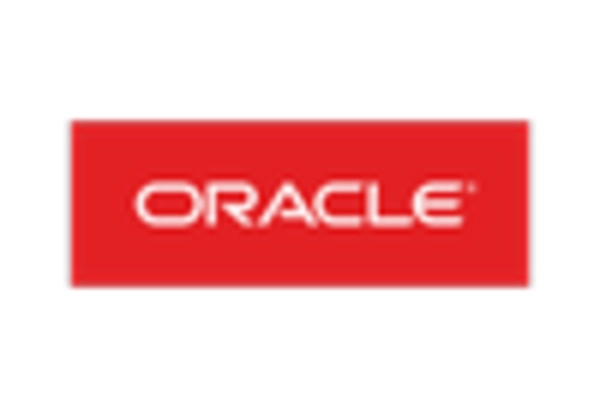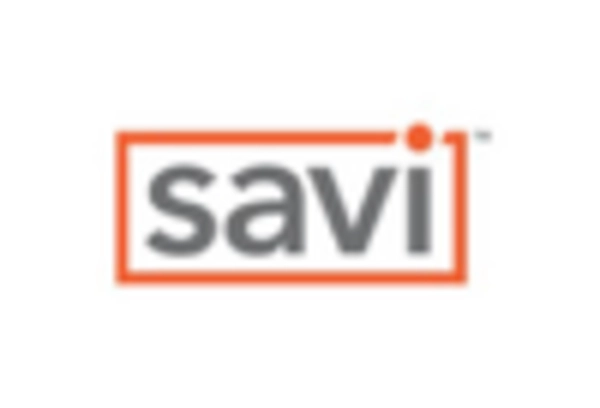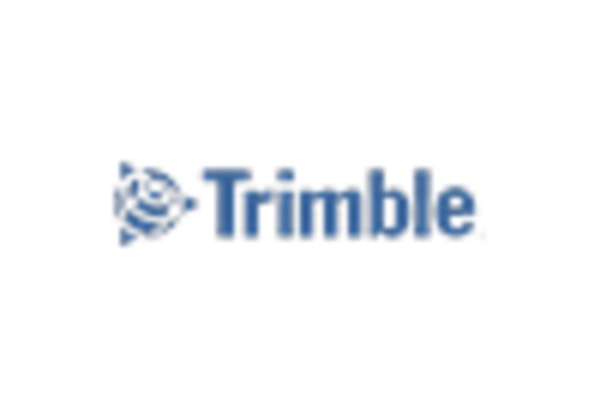Growth of E-commerce and Retail Sectors
The rapid expansion of the e-commerce and retail sectors in India is a significant driver for the asset tracking-software market. With the increasing volume of goods being transported and stored, businesses are turning to asset tracking solutions to manage their inventory effectively. The e-commerce sector alone is projected to reach $200 billion by 2026, necessitating robust asset management systems to handle logistics and supply chain complexities. As retailers seek to enhance customer satisfaction through timely deliveries and accurate inventory management, the demand for asset tracking software is likely to rise. This growth in the retail landscape presents a substantial opportunity for the asset tracking-software market to flourish in the coming years.
Rising Demand for Operational Efficiency
The asset tracking-software market in India is experiencing a notable surge in demand driven by the need for enhanced operational efficiency across various sectors. Organizations are increasingly recognizing the importance of real-time asset visibility to streamline processes and reduce operational costs. According to recent estimates, companies that implement asset tracking solutions can achieve up to 30% reduction in asset-related expenses. This trend is particularly evident in industries such as manufacturing and logistics, where the ability to monitor assets in real-time can lead to significant improvements in productivity. As businesses strive to optimize their operations, the asset tracking-software market is likely to see continued growth, with more companies investing in these technologies to gain a competitive edge.
Technological Advancements in Tracking Solutions
Technological advancements are playing a crucial role in shaping the asset tracking-software market in India. Innovations such as GPS, RFID, and advanced data analytics are enhancing the capabilities of asset tracking solutions, making them more efficient and user-friendly. These technologies enable businesses to monitor assets in real-time, analyze data for better decision-making, and improve overall asset utilization. As organizations become more aware of the benefits of these advancements, the demand for sophisticated asset tracking software is expected to rise. The asset tracking-software market is likely to experience growth as companies seek to leverage these technologies to enhance their operational capabilities and gain insights into their asset management processes.
Government Initiatives for Digital Transformation
The Indian government is actively promoting digital transformation initiatives, which significantly impact the asset tracking-software market. Programs aimed at enhancing the digital infrastructure and encouraging the adoption of technology in various sectors are creating a conducive environment for asset tracking solutions. For instance, the Digital India initiative aims to transform India into a digitally empowered society and knowledge economy. This push for modernization is likely to increase the adoption of asset tracking software, as organizations seek to comply with government regulations and leverage technology for better asset management. The asset tracking-software market is expected to benefit from these initiatives, as more businesses recognize the importance of digital tools in improving efficiency and accountability.
Increasing Focus on Compliance and Regulatory Standards
As industries in India face stricter compliance and regulatory standards, the asset tracking-software market is poised for growth. Companies are required to adhere to various regulations concerning asset management, safety, and reporting. This has led to a heightened demand for software solutions that can ensure compliance and provide accurate tracking of assets. For instance, sectors such as pharmaceuticals and food and beverage are subject to stringent regulations, making asset tracking essential for maintaining quality and safety standards. The asset tracking-software market is likely to see increased adoption as organizations invest in solutions that help them meet these regulatory requirements while minimizing risks associated with non-compliance.















